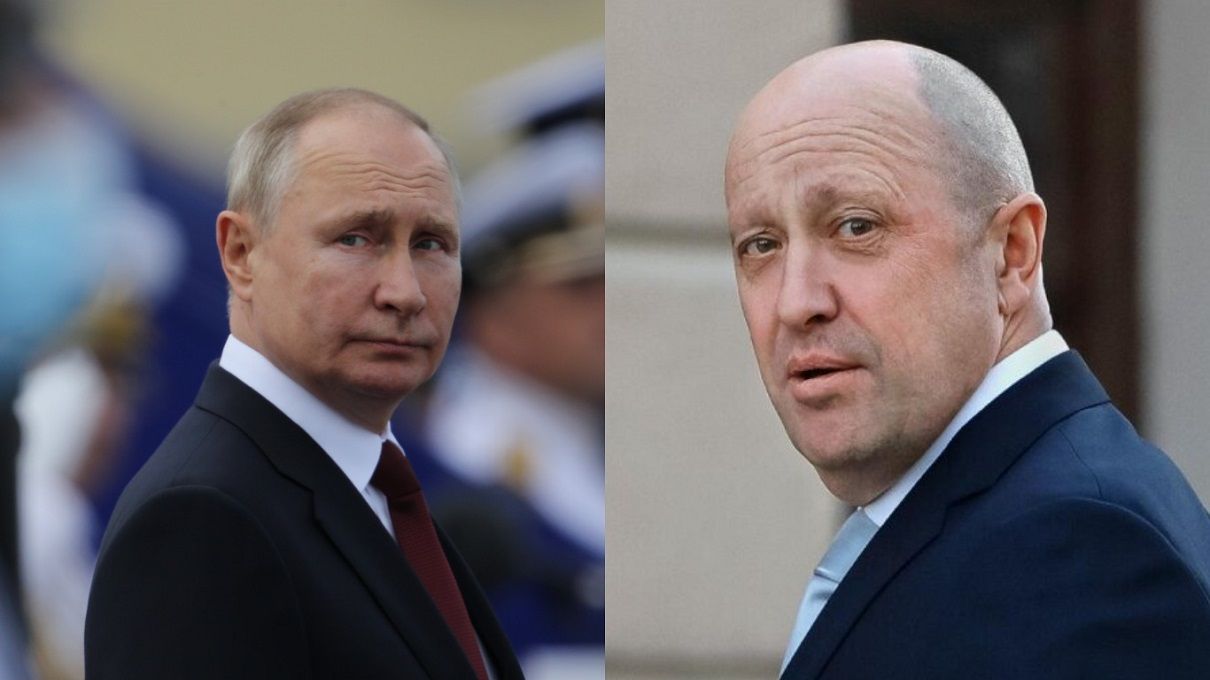Russian President Vladimir Putin welcomed Wagner boss Yevgeny Prigozhin to the Kremlin five days after the uprising by mercenaries. Accompanied by more than 30 other leaders from the group, they met with Putin, as reported today by Presidential spokesman Dmitry Peskov, according to Interfax. Peskov stated that the Wagner group emphasized their respect for Putin as the head of state and commander-in-chief of the armed forces during the meeting.
The meeting with representatives of the Wagner group took place in the Kremlin on June 29 and lasted approximately three hours. Putin invited a total of 35 people, including Prigozhin, as revealed by Peskov. The spokesman stated that during the meeting, Putin discussed the activities of the Wagner Group in Ukraine and reviewed the “events of June 24,” when the mercenaries launched a campaign in Moscow as a protest against the Russian military leadership. Putin then explored with the representatives the possibilities for “further work and military assignments.”
Associated Press (AP) and Meduza have noted that on June 29, Peskov responded to a question about Prigozhin’s whereabouts, stating that the Kremlin had no knowledge of his location.
AP emphasizes that the confirmation of Putin meeting Prigozhin face-to-face is remarkable. During the armed uprising, Putin denounced Prigozhin as a traitor and spoke of severe punishment, but the prosecution against the head of Wagner Group was later dropped. Prigozhin’s future remains uncertain, especially following the recent information about the meeting, which shed light on the extent of behind-the-scenes dealings within the Russian leadership. The announcement, along with the release of a video featuring Chief of the General Staff Valery Gerasimov by the Ministry of Defense for the first time since the Wagner mutiny, suggests that the Kremlin is signaling control over the current turbulent times, according to AP.
Two days after the Kremlin meeting, Putin delivered a speech where he mentioned that the majority of Wagner members are patriots and suggested they could relocate to Belarus or join the regular Russian army. However, no official statements have been made regarding the transfer of mercenaries to Belarus or their integration into the army since then. While Belarusian leader Alexander Lukashenko initially claimed that Prigozhin had arrived in Belarus, he later stated that the Wagner chief was in Russian territory. Russian military bloggers maintain that the situation has not changed.
According to the DPA news agency, the Wagner Group, operating in several countries in Africa and the Middle East, serves as an essential instrument of Kremlin influence abroad. However, their troops have notably excelled in combat in Ukraine. Considering Ukraine’s ongoing counter-offensive and the early successes of the Ukrainian military, DPA suggests that Putin may be more reliant on Prigozhin’s services than ever before. Analysts concur that the Kremlin leader has no interest in antagonizing Prigozhin, who possesses significant knowledge about him.


















